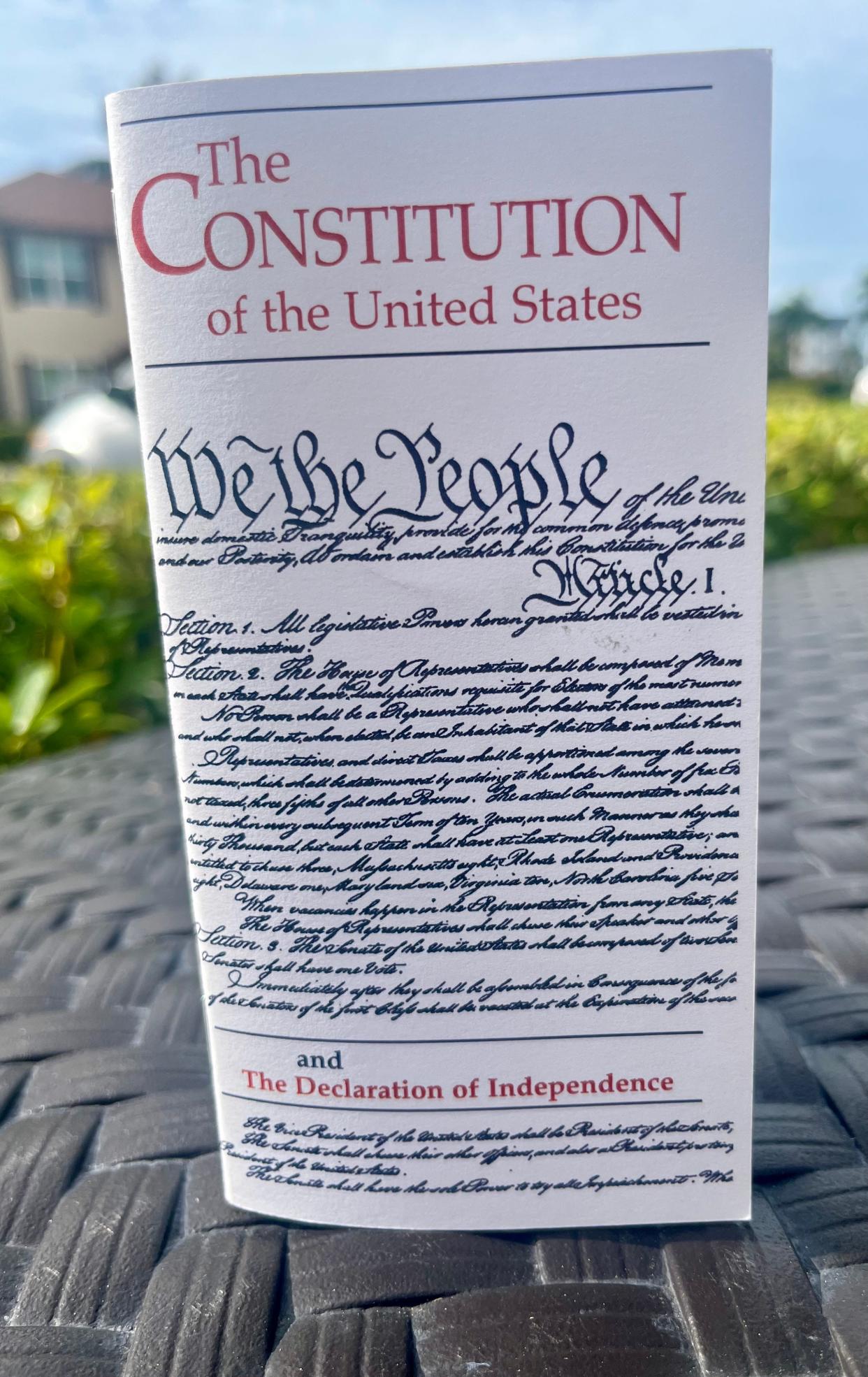What is a Bill of Rights sanctuary county? Some places in Florida block federal laws

Last August, Florida's Collier County declared itself a "Bill of Rights sanctuary."
Sarasota County followed a few months later. The Marco Island City Council announced in January plans to be the first city to take that stand. A Hendry County commissioner wants to join the fight. The Volusia County Chair in 2021 tried to get support for the move there but it was voted down.
What does any of that mean? Mostly, it means that people there are unhappy with and distrustful of the federal government and want to be able to disregard federal rules they feel are unconstitutional or overreaching.
What are Bill of Rights sanctuary counties or cities?
Collier County Commissioner Chris Hall described the ordinance as a way to protect the "God-given rights" of the county residents. He said it would allow the county to have the backs of its citizens when there's overreach by the federal government that infringes on those rights. Details of such infringement were left undefined.
The ordinance proclaims the county has the "right to be free from the commanding hand of the federal government and has the right to refuse to cooperate with federal government officials in response to unconstitutional federal government measures."
Collier's ordinance defines "any federal act, law, order, rule, or regulation, which violates or unreasonably restricts, impedes, or impinges upon" a person's Constitutional rights as unlawful, making any such act "null, void and of no effect in Collier County."
It prohibits any "agent, department, employee or official of Collier County," from enforcing or investigating any activity relating to the unlawful act, although the actual nature of the unlawful act is left vague. If the ordinance conflicts with any other laws, the most restrictive rules would apply.
How do Bill of Rights sanctuary declarations work in practice?
That remains to be seen. Anyone violating a Bill of Rights Sanctuary ordinance could face local civil and criminal penalties, but critics have called them "publicity stunts" and pointed out that defying federal laws could lead to lawsuits and federal punishment.
Why are Florida counties declaring themselves Bill of Rights sanctuaries?
Collier commissioners initially attempted to pass the ordinance in 2021 during the COVID-19 pandemic because of "growing concerns over the federal government's increasing encroachment on the rights and privileges of its citizens," specifically outrage over vaccine and mask mandates which many supporters considered to be oppressive and unconstitutional.
The ordinance failed by a vote of 3-2, but two commissioners who supported it joined the board in 2022.
By the end of July 2021, there were 2,635,660 reported cases of COVID in Florida and 40,188 reported deaths, according to data from the Florida Department of Health.
Sarasota County passed a Bill of Rights Sanctuary resolution in November 2023 based on Collier's ordinance. Sarasota's grew out of concern over perceived government overreach during the pandemic and frustration with healthcare professionals at Sarasota Memorial Hospital following treatment protocols established through the federal Centers for Disease Control (CDC) who refused to prescribe alternative therapies such as Hydroxychloroquine and Ivermectin (which studies have shown to have no impact on the virus) when requested.
Are Bill of Rights sanctuaries the same as Second Amendment sanctuaries?
They're an expansion of them since the Bill of Rights includes the Second Amendment. The Bill of Rights, or the first 10 amendments to the U.S. Constitution, includes such liberties as freedom of speech and religion and the right to keep and bear arms.
What are Second Amendment Sanctuaries?
The Second Amendment of the U.S. Constitution reads: "A well regulated Militia, being necessary to the security of a free State, the right of the people to keep and bear Arms, shall not be infringed."
Many people interpret this to simply mean that any laws preventing an American from having weapons are unconstitutional. Many others argue that the "well regulated" part cannot be ignored, the country's founders didn't envision combat-style weapons available at local gun shops, and that weapons sales should follow consistent rules. Gun control laws are a constant give and take between protecting the constitutional rights of gun ownership and passing laws or enacting regulations in the hopes of protecting American citizens from shootings.
To shield themselves against what they see as potential or existing federal overreach, from 18 to 20 U.S. states (depending on your definition of Second Amendment sanctuaries) have passed laws declaring themselves Second Amendment sanctuaries and prohibiting the enforcement of laws, treaties, executive orders, rules or regulations of the United States government that the state considers in violation of the Second Amendment.
More than half of the counties in the United States also now consider themselves Second Amendment sanctuaries, according to Kristina Heuser, a practicing attorney in New York, who drafted Collier County's more sweeping ordinance.
How many Second Amendment Sanctuary counties are there in Florida?
Most of them.
At least 44 of Florida's 67 counties (and at least three cities and one town) have passed Second Amendment or other pro-Second Amendment resolutions. In 2013, when there was a widely spread fear that President Barack Obama would pass new gun laws and sales of firearms and ammunition skyrocketed, the Florida Sheriff's Association issued a proclamation supporting the Second Amendment and saying members would not "assist, support or condone any unconstitutional infringement of that right."
Counties that have passed Second Amendment ordinances and proclamations include Baker, Bay, Bradford, Brevard, Calhoun, Citrus, Clay, Collier, Columbia, DeSoto, Dixie, Escambia, Flagler, Franklin, Gilchrist, Gulf, Hendry, Hernando, Highlands, Holmes, Indian River, Jackson, Jefferson, Lafayette, Lake, Lee, Levy, Madison, Marion, Manatee, Nassau, Okaloosa, Okeechobee, Polk, Putnam, Santa Rosa, Sarasota, St. Johns, Sumter, Suwannee, Taylor, Union, Wakulla and Walton. Cities that have passed similar resolutions include Panama City Beach, Marco Island and Newberry,
This article originally appeared on The Daytona Beach News-Journal: Bill of Rights sanctuaries vs. Second Amendment sanctuaries in Florida

